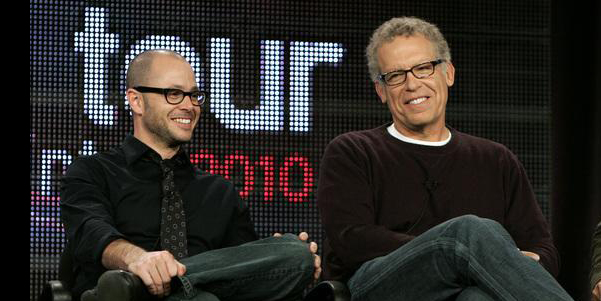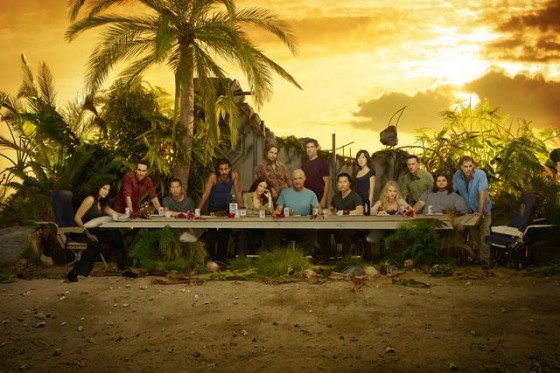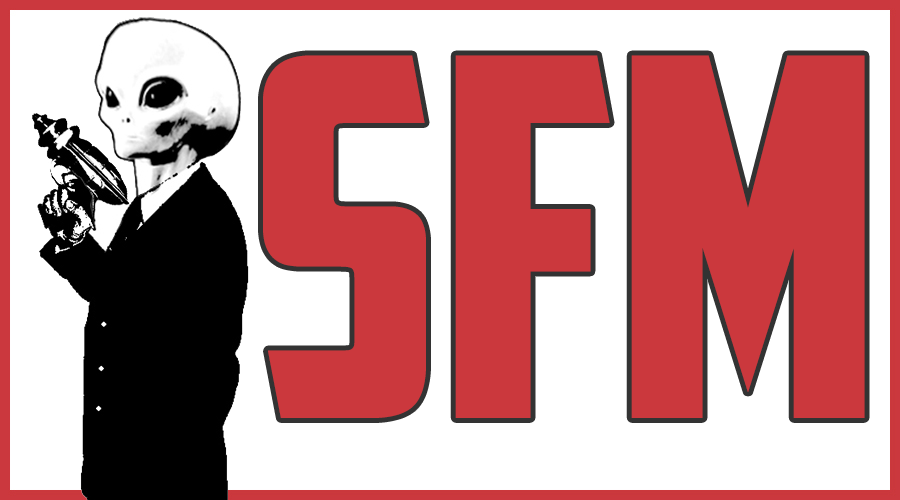
I know that this question haunts the mind of every fan of ABC’s “Lost”, especially if they were “Battlestar Galactica” fans. Here are excerpts from a lengthy interview with “Lost” executive producers Carton Cuse and Damon Lindelof with the Chicago Tribune’s Maureen Ryan.
Q: Even as a hardcore “Battlestar Galactica” fan, I was taken aback at how impassioned people were about the last set of episodes of that show. And I was really unprepared for how harsh people could get over the smallest things and what they meant, and over what and wasn’t dealt with in those final set of episodes. It was as if everyone had a different checklist in their mind of what had to happen.
In approaching this last season, do you have the sense that it’s going to be like that? Or did you just not think about the intensity of the fan reaction?
Lindelof: I’m sure we both have similar yet vastly verbose responses to that because we talk a lot about it and been talking a lot about the ending of the show for a long time. But I think that there is a disproportionate focus on a finale and there always has been. And this happens on a micro level, where the critically and fan-hated season, Season 3, also happens to have the greatest finale probably of the series. And the taste left in your mouth in the wake of the finale is really all that matters.
If the entire series is going to be judged based on our ability to execute the dive, you can’t do your job. Part of it is — despite what people think or say, so much of it has been talked about and planned for years now that you’re just kind of executing the plan to the best of your ability. You’re changing the plan when it’s not working, but otherwise, you’re kind of married to the inevitable — the stuff that we want to do.
Cuse: We also spent a lot of time talking about how we don’t want the last season of the show to be didactic. It’s very dangerous to basically create a checklist of answers and then start trying to tick them off, because we want to make sure we’re telling engaging stories. For us really, while the mythology is important, for us it’s a story about these characters. And so most of our focus has been on, how are we going to resolve the character stories?
We really feel we are very committed to this notion of not stripping the show of its essential mystery. I mean, mystery exists in life and we kind of always go back to the midi-chlorians example [in the ‘Star Wars’ prequel films]. Your understanding of the Force was not aided by knowing that there were little particles swimming around in the bloodstreams of Jedi.
There are sort of fundamental elements of mystery and magic to the show that are unexplainable, and any attempt to explain them would actually harm the show, and in our opinion, the legacy of the show. So we’re trying to find the right blend of answering questions, but also leaving the things that should be mysterious mysterious.
Lindelof: And therefore, it’s like, when people ask us, “What is the island, what do the numbers mean?” You know, we don’t know how to answer the question, “What do the numbers mean?” We can tell you what the practical application of the numbers is in the series, but how do you answer a question like that?
It’s like, if you could have a sitdown with God and say, “Why is a giraffe’s neck so tall?” You know, because he can eat from large trees. And it’s like, “But you made all these other animals that don’t need tall necks to eat, so why?” So you get into a conversation where every answer you give only makes it more frustrating.
Cuse: Or that leads to the question of, did God in fact create that giraffe or not, which is also a very, very tricky question to attempt to answer.
Lindelof: Of course. Look, the franchise of “Lost” — in addition to the primary franchise, which is the characters and the mysteries of the island that have always been in support of the characters — there’s this idea of, “What did they mean by that?” The zeitgeist of the show has developed around different iterations of that question. What do they mean by that?
Because the show isn’t like a traditional cop show where by the end of it somebody basically says, “Here’s who did it, here’s why they did it, and here is what is going to happen to them.” Or a law show with no ambiguity. There’s going to be an element of “What do they mean by that?” long after “Lost” is done and no matter what we did, there’s nothing we could do to prevent it.
Cuse: And also, we also are aware that answering questions inevitably raises other questions. We call it the Big Bang conundrum.
Lindelof: A.k.a, Kate’s plane.
Cuse: Yeah, if you go back and you say, “OK, Jacob is obviously someone who was of great significance to the mythology of the show, but who was before Jacob? And then but who created that person?” If you go back in the universe you can say, the universe was created in an event called the Big Bang, but then you can inevitably ask the question, “Well, what was before the Big Bang?”
I think the audience has to have a sort of respect for the fact that there is only a circumscribed set of answers that we can ever give. And we’re not sitting here trying to evade our responsibility to provide answers. We are going to answer the questions that, for us, feel like they need to be answered and we feel like we have some cool and satisfying answers for them.
Lindelof: One of which will be, we will answer what caused the Big Bang.
Cuse: You know, ultimately, we’re excited though, because it does feel like we concocted the mythology of the show a long time ago and it’s like having a Christmas present and you kept it on the shelf a long time and people are finally going to get to open it and see it. So we’re finally getting to deploy the ending of the show and that is exciting to us. It is a story and I think as storytellers, that’s always what’s delicious — you set up the audience and then you basically finish the story. There’s a payoff and we’re actually going to finally give the audience our payoff.
And we are going to go off the grid after the show is over to avoid the actual issue of having to interpret the ending. Again, we’ve always felt that one of the compelling elements of “Lost” is its intentional ambiguity. The fact is, it’s open for interpretation and discussion and we feel like we would be doing a disservice to the fans and the viewers to say, “No, you must only look at this in one way.” We don’t think that is really good for the show or for people’s ability to read into the show what they want. I mean, that’s what I like to do when I read a good book — basically be able to debate what the real meaning and intention of that story is.
Lindelof: The one promise that we are making is that what we’re not going to do is leave the show hanging so we can pick up the ball and run with it two years from now in some other television project or movie. I think that we owe ourselves and the story and the audience a sense of finality.
Cuse: The most complete ending that we can give them.
Cuse: The other phenomenon which is interesting is that the immediate interpretation of the ending of “Lost” may not be the same as the ultimate interpretation of the ending of “Lost.”
I mean, you as a “Battlestar” fan probably have experienced the sensation that there was an immediate reaction to how “Battlestar” ended, and [now] it seems like there’s a bit of and evolving reaction to how “Battlestar” ended. And we anticipate that the same thing might happen with “Lost.”
Lindelof: We keep getting asked about the final image and we’re like, “Yeah, sure, we know what it is.” But people are acting like the final image of the show is revelatory in some way, as opposed to maybe [what’s revelatory] is what happens in the first hour of the finale.
Cuse: But what’s happened is, I think people have expectations that have grown from other shows, where that last moment is such a sting. Whether it’s all of a sudden you see a snow globe [as in “St. Elsewhere”] or you cut to black or somebody wakes up and it’s all been a dream. Whatever it is, it’s like that final twist negates or completely overshines everything that’s come before it.
Lindelof: Which is amazing because the fact that people invested six years of their lives and over 120 hours on “Lost” and they’re going to pay it all off in this 30-second scene. “That is going to change the entire way that I feel about the show.”
Cuse: We hope it doesn’t.
Lindelof: We’ll be riding either a wave of goodwill into the finale, or bad will, and it’s happened different ways in different seasons for us. Last year, [we had] the overt time travel story mechanism and the rise of characters like Faraday and the risk of putting Sawyer with Juliet. All of those things could have been [big problems] in any other world, and we were just fortuitous enough that it worked. But we really don’t have any sense of how this season is going to be received until it’s on the air.
[Source] ChicagoTribune


